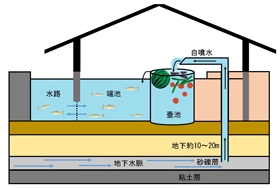Aquaponics is similar to hydroponics, but makes use of fish to create fertilizer-rich (fish waste 💩) water for the plants to thrive. In turn, the plants help clean the water for the fish.

You can put the pumps and fish feeders on a timer to automate them, and even use fish types people eat for fish farming.
My only ask is that you remember to make the tank nice for the fish. A stressed fish is a dead fish, and way too many aquaponic users just throw a bunch of fish in an empty(no stimulation) and overcrowded tank.
The below videos talk about using the systems to grow food in urban spaces.
“Ever heard of aquaponics? In urban areas, aquaponics helps combat barriers that come with farming in cities, like lack of access to space. “
“There are so many barriers in place when it comes to growing food in cities, but education and lack of access to space are the hardest to overcome. Yemi Amu has dedicated her life as a farmer to solving this problem, by starting the only Aquaponics farm in NYC. Oko Farms in Brooklyn is both a working farm which provides fresh food to surrounding neighborhoods, while also actively engaging the public in education on how to grow food for yourself in urban environments.”
"What's up everyone, in this video i build part 1 of an indoor DIY aquaponics system for my 10 gallon fish tank! I have been interested in aquaponics for a while now and know i wanted to build an indoor DIY aquaponics system early on when i saw the price of most retail aquaponics kits. This DIY aquaponics system was built using all materials found either on Amazon or at local hardware stores and came in under $50 total! "

